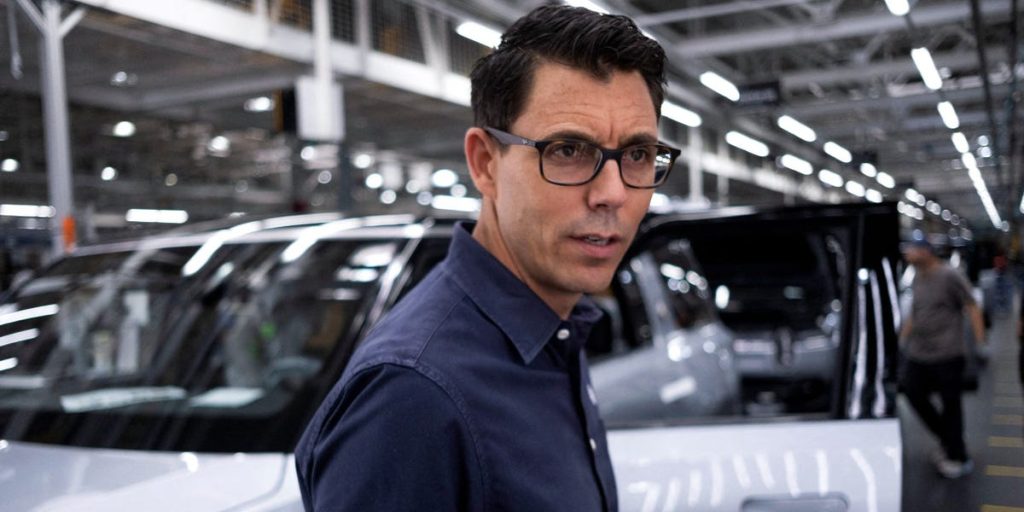Rivian CEO RJ Scaringe said Chinese automakers have such a built-in cost advantage that won’t last forever.
“It’s inconceivable that Western markets would not allow their domestic manufacturers to produce in China, but simultaneously allow freely those Chinese companies to produce in China and sell,” Scaringe said during a recent appearance on the Everything Electric podcast.
The US already imposes barriers similar to Scaringe’s prediction. The Biden administration imposed a 100% tariff on Chinese-made EVs. President Donald Trump has used tariff threats to pressure automakers to make more vehicles in the US.
Rivian isn’t in the Chinese market, but Scaringe says the company pays close attention to its competitors to ensure that its technology remains on the cutting edge.
“The part that everyone needs to take note of is that these are technically very advanced vehicles and more advanced than a lot, most of, I should say, most of the Western vehicle manufacturers,” he said. “I’d say Rivian and Tesla being exceptions to that.”
As for the lower cost, Scaringe described how a combination of subsidized development and lower labor costs that touches everything from components to the car itself makes it very difficult for automakers to compete.
“We’ve taken lots of cars apart, every car manufacturer does,” he said. “There’s not something magical when you take it apart that’s allowing these really impressive cost structures. There’s no secret magic thing that you’re like,’ Oh, aha, they did this.’ But rather it’s the compounding benefits of a lower cost of capital.”
Related stories
Protectionism alone won’t work either, Scaringe said, because so many products, including non-automotive ones, rely on rare earth minerals and other components of which the US does not have in abundance.
“As you think about future technologies, we actually don’t have the same geological advantages that we had in the fossil fuel area,” he said. “So by necessity it requires trade and trade often with countries that we haven’t historically traded as much with.”
Scaringe said that Rivian needs nickel for its batteries, but there simply isn’t enough US supply to suffice. Instead, Indonesia is the world’s largest nickel producer. He said that the Trump administration “really does understand” the dilemma many companies are facing.
“Even if we really wanted to, there’s not an ability for us to press a button and have a nickel supply chain, nickel mines pop up in the United States, putting aside the fact that there’ll be very, very few communities in the United States that want to have a nickel mine in their backyard or their people that want to necessarily work in that line of business,” he said. “And so we have those types of limitations.”


